Common Groundsel
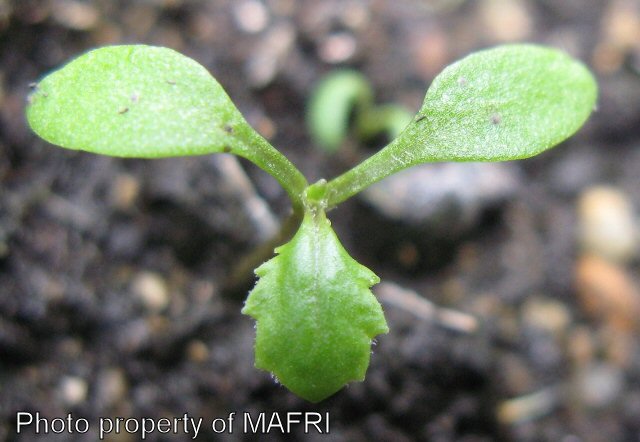 click to enlarge |
 |
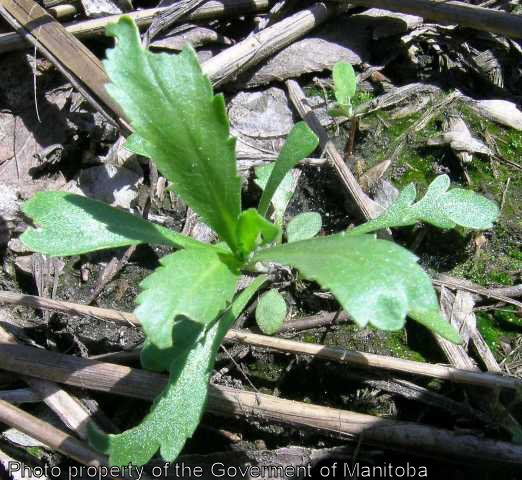 |
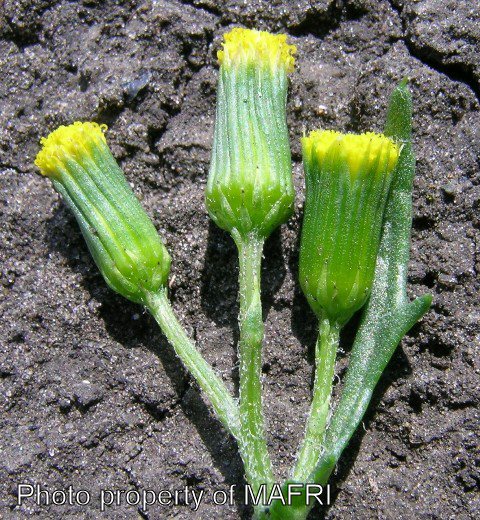 |
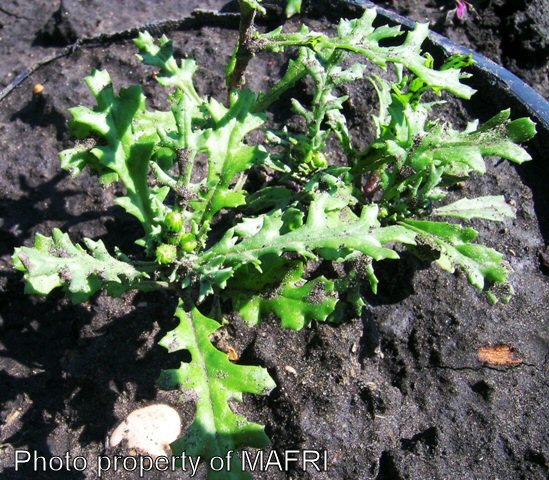 |
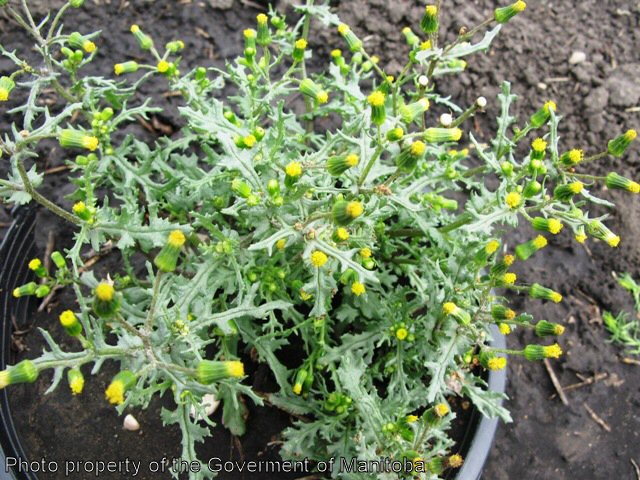 |
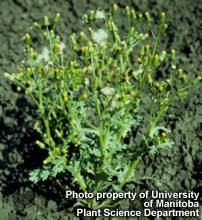 |
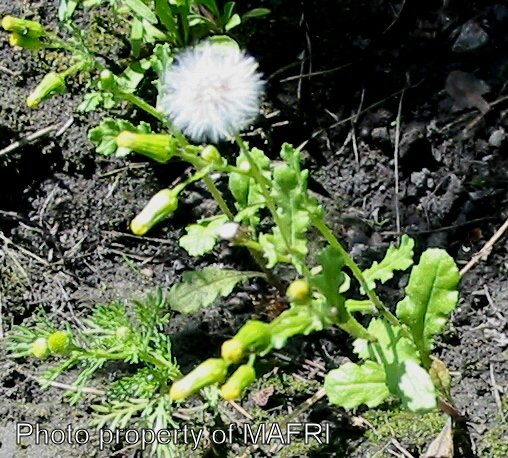 |
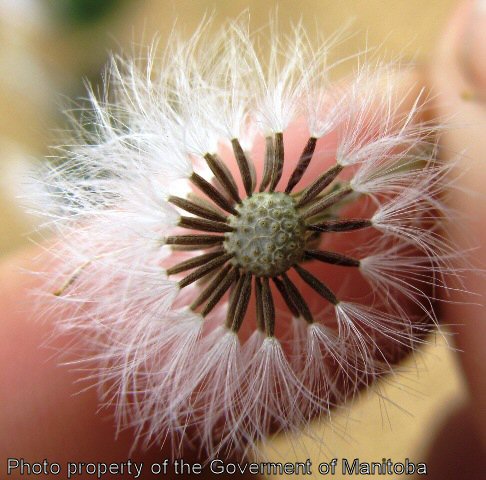 |
 |
Biology
An annual, winter annual or possible biennial, reproducing by seeds. The stems are erect or reclining,10-40 cm tall, branched, hollow, smooth, and succulent. The leaves are alternate, fleshy, and deeply lobed. The lower leaves are petiolate while the upper leaves clasp the stem. The flower heads occur in a cluster at the ends of branches and stems. The yellow tubular florets are surrounded by smooth involucral bracts. The seeds are long and narrow, 2.5 mm long, and tan. A pappus of fine white hair is attached to the upper end of the seed.
Common groundsel grows in fields, lawns, and gardens; particularly abundant in sandy fertile soils. This weed is competitive in vegetable crops and flower gardens. Not considered a problem in cereal or oilseed crops. This weed is a prolific seed producer.
Scouting Techniques
Take a minimum of 20 weed counts across the field.
Effects On Crop Quality
Contains pyrrolizidine alkaloids that the liver converts into toxic pyrroles. These are toxic to horses, swine, and cattle. Sheep are less susceptible. Chronic cases result from small daily doses over a period of weeks or months.
Threshold/ Yield Loss
Competitive in vegetable crops.
Control Tips
- Groups 9 & 10 in herbicide tolerant crops
- Group 4

